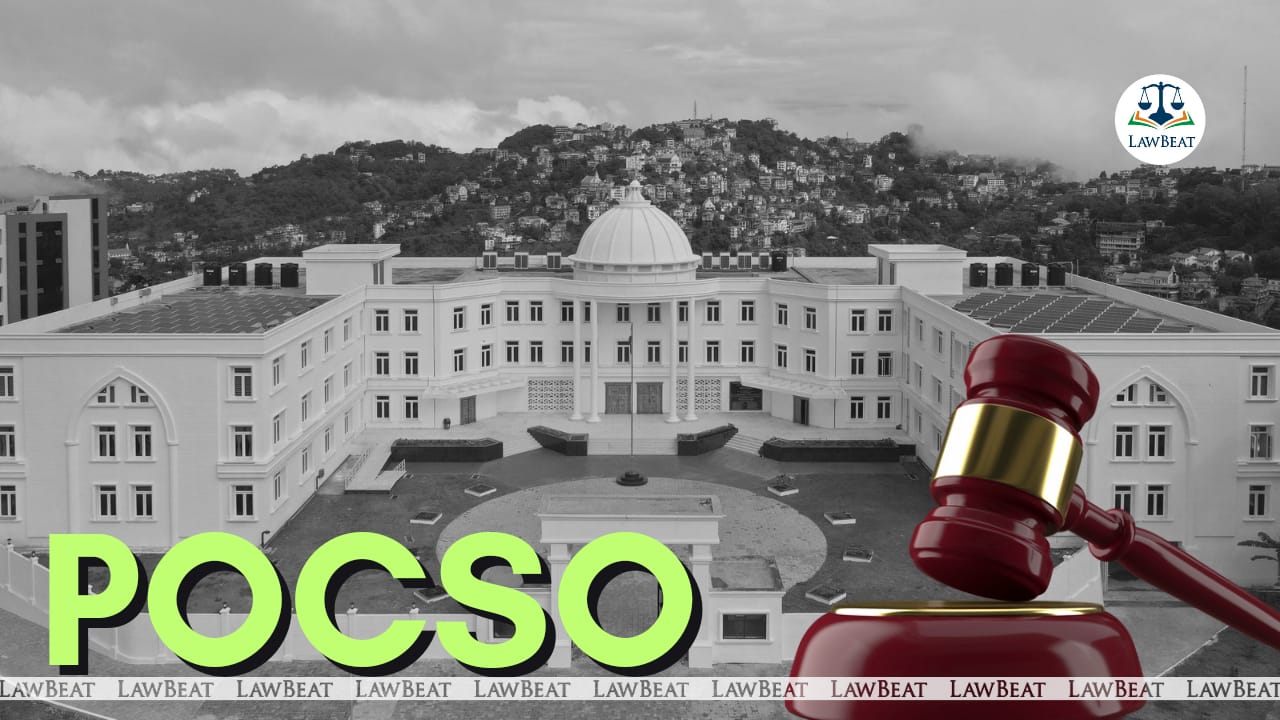'Charge Framing Must Be Precise' : Gauhati HC Invalidates 20-Year Sentence Over Trial Court’s Failure to Specify Charge U/S 4(1) or 4(2) of POCSO Act

The court noted that due to the absence of a specific charge, there is a likelihood of the accused being misled and such a serious lacuna will naturally operate to the benefit of the accused
The Gauhati High Court’s Aizwal bench recently quashed the conviction and 20-year sentence of a man under the Protection of Children from Sexual Offences (POCSO) Act after the trial court’s failure to specify whether the accused was charged under Section 4(1) or Section 4(2) of the POCSO Act, creating ambiguity and potential prejudice against the appellant.
A Division bench comprising of Justice Michael Zothankhuma and Justice Marli Vankung, emphaisised that, “When there is a serious lacuna which could cause prejudice to the appellant, the benefit of doubt should be given to the accused.”
The case arose from an incident on December 23, 2021, in Thingdawl, Mizoram, when the appellant, Laldingluaia, was accused of sexually assaulting a six-year-old girl. According to the First Information Report (FIR) filed by the victim’s mother, the child returned home visibly frightened and reported that the appellant had sexually assaulted her. The police registered the case under Section 4 of the POCSO Act, dealing with the punishment for penetrative sexual assault. An investigation was conducted and subsequently the police submitted a charge sheet. The trial commenced in the Fast-Track Court at Kolasib, where the appellant pleaded not guilty. Despite his plea, the trial court convicted him under Section 4 of the POCSO Act and sentenced him to 20 years of rigorous imprisonment. Dissatisfied with the trial court’s ruling, the appellant challenged its decision before the High Court.
The accused/ appellant argued that the charges framed under Section 4 of the POCSO Act did not specify whether the prosecution sought to convict the appellant under subsection 4(1), which prescribes a minimum sentence of 10 years) or 4(2) which provides for a minimum sentence of 20 years. Thus, rendering the judgment of the trial court unjustified. It was also contended that the conviction by the trial court was based solely on the testimony of the victim, however, the court failed to conduct a preliminary inquiry in order to satisfy itself whether the child was tutored or not or if the victim was capable of understanding the questions put to her and giving rational answers to the same. It was further contended that the medical report lacked conclusive findings about the victim’s physical injuries. The testimony of the medical officer did not clarify whether the hymen was ruptured or if there were signs of external genital trauma, which was overlooked by the trial court.
The prosecution conceded that the trial court erred in framing the charges. The Additional Public Prosecutor and Legal Aid Counsel for the victim agreed that the conviction under Section 4(2) was improper since the charges had been framed generically under Section 4.
The court reviewed Section 4 of the Protection of Children from Sexual Offences (POCSO) Act, 2012 and observed that in the present case, the charge was framed solely under Section 4 of the POCSO Act without specifying whether it referred to Section 4(1) or Section 4(2). The court cited Section 211 of the Criminal Procedure Code (Cr.PC), which requires charges to clearly state the offence, and noted that in this case, the trial court failed to specify Section 4(2) of the POCSO Act.
Referencing the case of Nanak Chand v. State of Punjab (1955), where the Supreme Court ruled that failure to frame a clear charge is a serious defect that could vitiate a trial and prejudice the accused, the court highlighted that the absence of a specific charge may mislead the accused into believing the charge was under Section 4(1), which carries a minimum sentence of 10 years. Given this ambiguity, the court decided that the appellant should benefit from the doubt and that a lesser sentence could have been imposed.
The court stated, “The sentence of the appellant has been made under Section 4, vide Order dated 07.09.2022, for a minimum period of 20 years, though the same can be done only in terms of Section 4 (2) of the POCSO Act. As the charge was framed only under Section 4 of the POCSO Act, we are of the view that the appellant could not have been sentenced for a term of 20 years under Section 4 of the POCSO Act, as the same can be done only in terms of Section 4 (2). Due to the above reasons, it appears that the appellant was not given a proper opportunity to defend himself, with regard to the charge and sentence apparently given under Section 4 (2) of the POCSO Act.”
Additionally, the court noted procedural issues in the trial, particularly regarding the failure of the trial court to ask preliminary questions to the victim child before recording her evidence. Citing the Pradeep v. State of Haryana (2023) ruling, the court reiterated that judicial officers must ask preliminary questions to ascertain the child witness’s capacity to understand the questions and their duty to speak the truth. The court emphasised the need for this safeguard to avoid the risk of the child being tutored. Further, the court noted that “the evidence of the Medical Officer does not inspire confidence.”
In light of these findings, the court ruled that the victim’s testimony could not be the sole basis for conviction without ensuring these safeguards were in place. The case was remanded back to the trial court for reconsideration and the impugned judgment and sentence order were set aside.
Cause Title: Sh. Laldingluaia Hmar Veng v State of Mizoram and Anr [CRL.A(J)/2/2024]
Appearances: P.P./Addl.PP, Mizoram for R1 , Emily L. Chhangte, learned Amicus Curiae. Ms. Vanneihsiami, learned Addl. Public Prosecutor and Mr. C. Tlanthianghlima, learned Legal Aid Counsel for the respondent No. 2.
